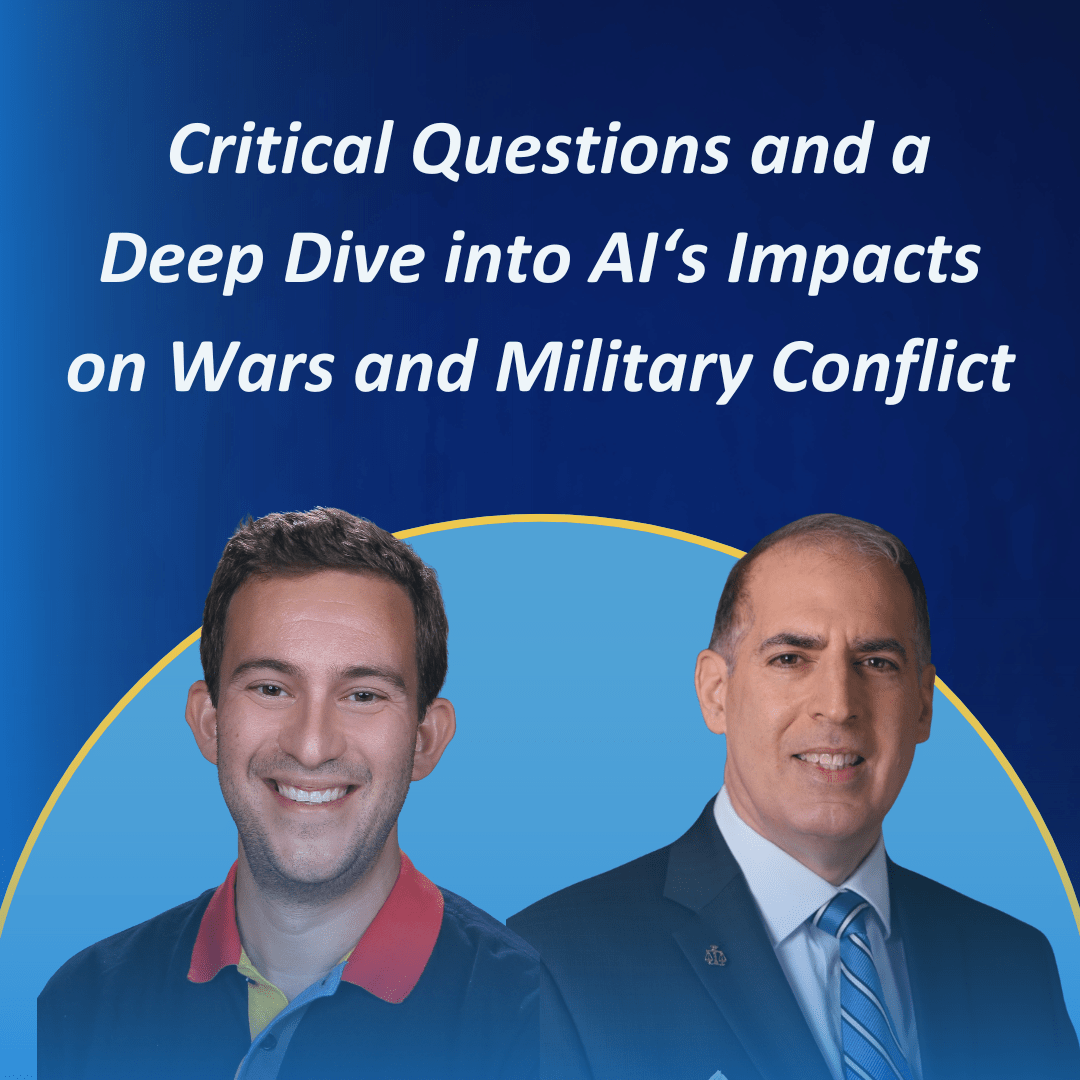AI and Faith has compiled resources from our AI and Warfare theme, from July/August 2025.
Podcasts
Should machines make decisions in the warfield? Can the “move fast and break things” motto of Silicon Valley be applied in the military? Join us in an interview with Dr. Shannon French about ethics in the military in the age of artificial intelligence. Listen here.
This episode brings together three experts on AI’s impact on the law and war ethics. They explore how the ethics of war may change due to the rise of artificial intelligence and what we can learn from various religious traditions to help us act ethically as we move into the future.
In this episode, we were joined by Al Gombis, a senior leader from the United States government, who has spent decades thinking about the integration of technology into our national security, military, and line enforcement operations. Together, we explored the many difficult questions and balancing acts required in figuring out how to ethically bring this technology into the realms of war and national security.
AI and Faith Articles
August 9th marks the 80th anniversary of “Fat Man’s” descent upon Nagasaki. As AI applications in warfare become more prevalent, the intersection of AI and atomic weapons has become an important issue. In this piece, AI&F editor Yuriko Ryan recounts her own family ties to the attack on Nagasaki, and considers the dangers of combining AI technologies with atomic weapons. Read more here.
Dr. Cynthia Kane (Captain, Chaplain Corps, US Navy) reflects on the existential choices we face about the direction warfare will take. When a machine’s “decision superiority” unfolds faster than human thought, where does conscience fit? How do we avoid the real moral damage done when people are forced to make life-and-death decisions absent time for moral reflection? Read here.
In a major step toward expanding its presence in Mexico and Latin America, AI and Faith took center stage in an exclusive interview on ¡Qué Tal Fernanda!, one of the most influential talk shows in Mexico. The interview was hosted by Fernanda and Pablo Ruz Salmones and featured Shannon French, the Inamori Professor in Ethics and the Director of the Inamori International Center for Ethics and Excellence at Case Western Reserve University, diving into the thought-provoking relationship between artificial intelligence, warfare and religious beliefs.
AI models for autonomous warfare remains an ethically fraught area: while many nations and defense contractors are leveraging the technology, many are questioning both the accuracy and the efficacy. In this piece, Rida Ejaz considers the morality of applying AI in warfare, and describes ways that these models may do more harm than good by failing to account for the nuances of human conflict.
Outside Articles
We need spiritual wisdom, interfaith dialogue and youth leadership to ensure AI service peace, not destruction. This was the key theme of a recent discussion between AI&F Expert Noreen Herzfeld, Professor at St John’s University, and theologian Ilia Delio hosted recently by The Council on Foreign Relations. The webinar explored how faith communities can shape the ethical use of AI, especially in contexts of war.
The US military, NATO countries, and other military powers around the world are racing to incorporate AI into their weapons systems, with varying degrees of commitment to the ethical use of this new technology. For some applications, AI can be very useful. In others, utilizing AI involves other ethical and technical challenges. For more information, check out the recent publication co-authored by AI&F expert Don Howard.
For over a decade, the UN has backed efforts to regulate and ban Lethal Autonomous Weapons (LAWS), but rapid advancement in artificial intelligence and unmanned weapon delivery systems such as drones has increased the urgency of such calls. While some advocate that AI-driven warfare has the potential to improve upon human decision making, the UN takes the stance that shifting accountability for “pulling the trigger” to a machine is both dangerous and unethical and should be banned.












